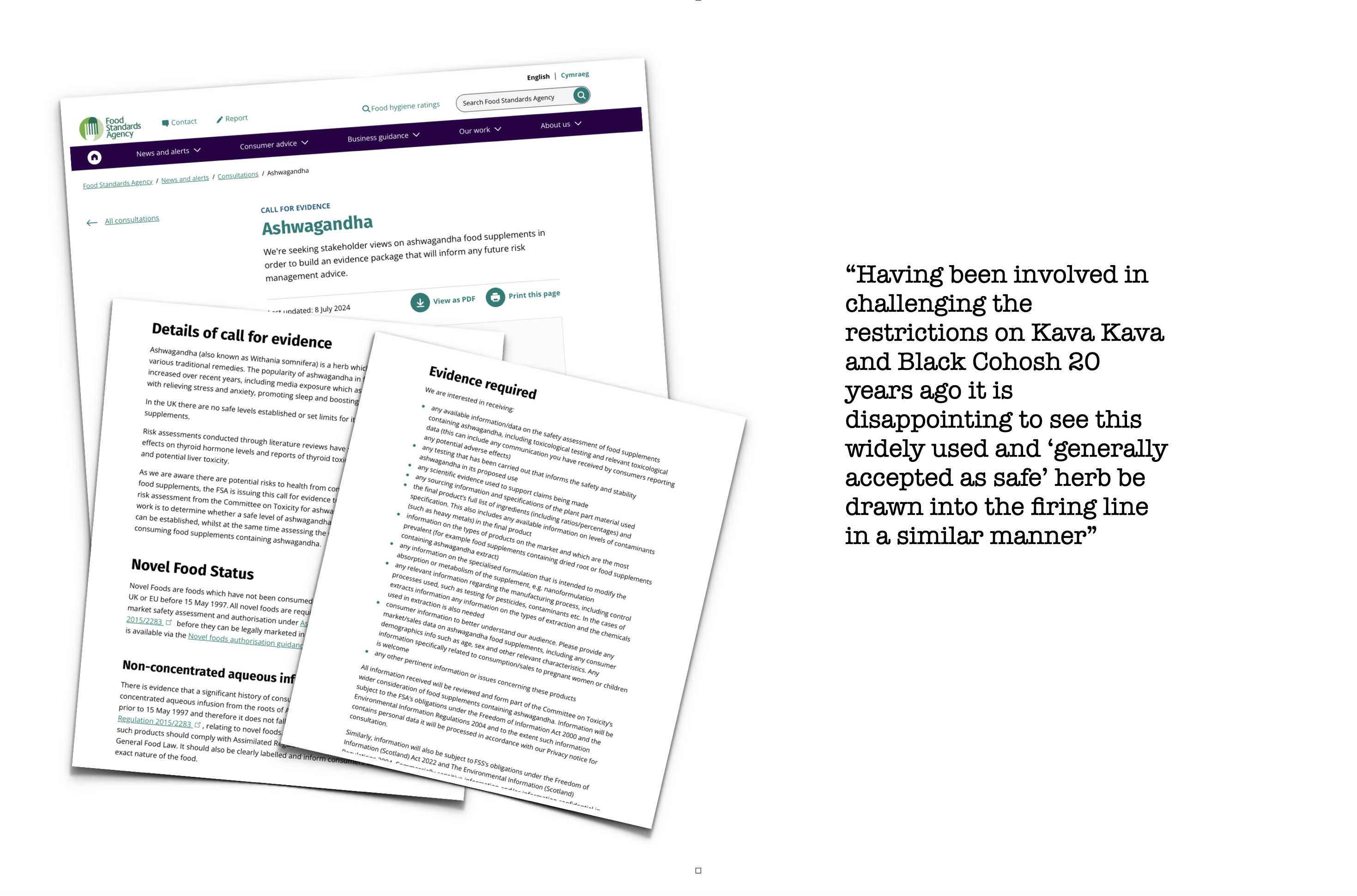The UK Food Standards Agency (ASA) has launched a consultation on ashwagandha (withania somnifera), in which it is specifically asking for safety data for ashwagandha food supplements.
The FSA says the purpose of the call for evidence is to build an “evidence package” on ashwagandha food supplements, which will be assessed through the FSA’s risk analysis process. It says this will be used “to inform any future risk management advice”. Information received during the consultation will be reviewed and form part of the Committee on Toxicity’s wider consideration of food supplements containing ashwagandha.
Call for evidence
In a statement, the FSA said: “As we are aware there are potential risks to health from consuming ashwagandha in food supplements, the FSA is issuing this call for evidence to support our request for a risk assessment from the Committee on Toxicity for ashwagandha.”
The regulator points out that in UK there are currently no safe levels established, or set limits, for the use of ashwagandha in food supplements. It added: “Risk assessments conducted through literature reviews have shown association with effects on thyroid hormone levels and reports of thyroid toxicity, hypoglycaemic effects, and potential liver toxicity.”
In April 2023 ashwagandha was banned in Denmark. The country’s authorities said they were unable to find a safe dose of the herb. The decision followed publication of study in 2020 by the Danish Technical University (DTU) which found potentially harmful effects on thyroid and sex hormones and – controversially – that the herb may induce abortions. The Danish findings have been heavily contested by industry bodies and were also challenged by a group of academics from India who argued that the DTU report “has several technical, scientific, and ethical pitfalls” and that it departed significantly from “methodology commonly practiced in food and pharmaceutical sciences”.
UK ban warning
Warning of “a possible Ashwagandha ban in the UK in 2025”, Dr Mark Tallon, managing partner of Legal Foods, a European Food law firm, wrote: “In the UK for the past 24 months we have been defending the safe use of Ashwagandha in food supplements … Despite evidence to the contrary the UK are now requesting evidence to demonstrate safety that will go forwards to a risk assessment.” In a warning to UK businesses with ashwagandha products, Tallon said: “Now is the time for … firms to invest in a coherent defence or look to loose access of their products for lawful sale in the UK”.
John McKee, owner of Edinburgh-based Hanover Healthfoods, sees parallels with earlier battles to preserve access to important herbs. “Having been involved in challenging the restrictions on Kava Kava and Black Cohosh 20 years ago it is disappointing to see this widely used and ‘generally accepted as safe’ herb be drawn into the firing line in a similar manner. Those previous decisions to ban and restrict respectively were based on extremely dubious evidence with a definite presumption that harm was being caused. I would echo Mark Tallon’s warnings that this threat should be taken very seriously by the trade and all efforts should be made to make our case.”
“I WOULD ECHO…WARNINGS THAT THIS THREAT SHOULD BE TAKEN VERY SERIOUSLY BY THE TRADE AND ALL EFFORTS SHOULD BE MADE TO MAKE OUR CASE”
McKee adds that local restrictions on products that are internationally retailed and widely available would, in practice, be an irrelevance for consumers. He says: “If I tell a longstanding Ashwagandha customer that I can’t legally sell it any more, they can stand at my counter and order it for personal use from an overseas website or from one of the many UK websites which judge regulations to be unconcerning to them.”
• Brands and other stakeholders wishing to contribute to the FSA consultation need to submit their comments and research data by 2 September 2024. More information on the information the regulator is interested in can be found here. Submissions should made to ashwagandha-callforevidence@food.gov.uk
